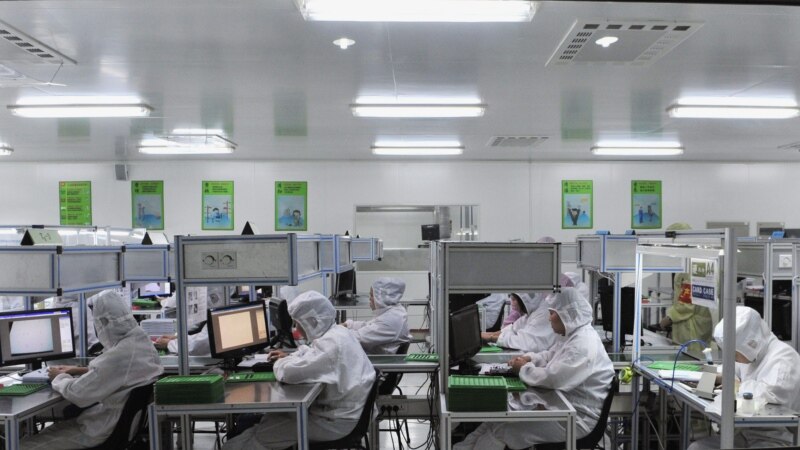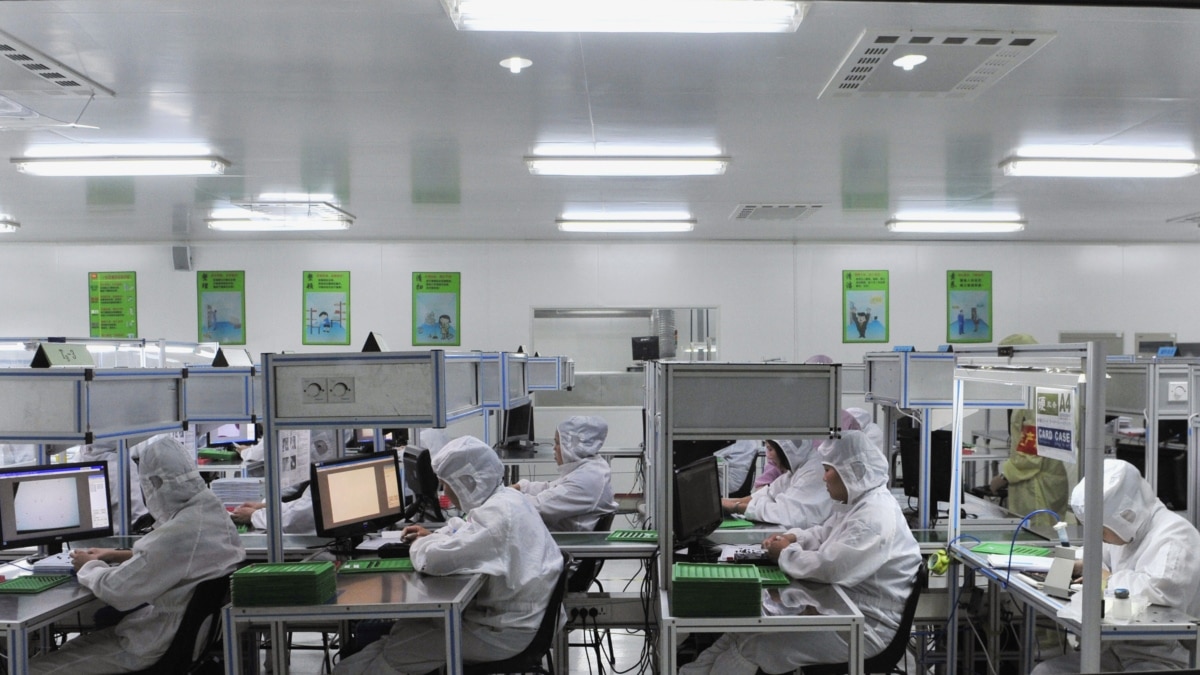This website uses cookies so that we can provide you with the best user experience possible. Cookie information is stored in your browser and performs functions such as recognising you when you return to our website and helping our team to understand which sections of the website you find most interesting and useful.


JOHANNESBURG, SOUTH AFRICA —
A group of U.S. lawmakers recently drafted a resolution criticizing South Africa’s government for its close relations with Beijing, including its use of Chinese technology, and called on President Joe Biden to review American’s relationship with Pretoria.
The resolution was introduced in the U.S. House of Representatives as South Africa conducted naval exercises with China and Russia in February.
There are U.S. concerns about the surveillance risks of Chinese telecommunications, but some analysts say it falls on each government to responsibly use technologies, and China is not the only player in the tech industry.
The U.S. has already banned Chinese technology company Huawei at home, saying it’s a risk to national security. There is also a push on Capitol Hill to ban Chinese social media app TikTok.
In sub-Saharan Africa, where less than 30% of people use the internet, most governments welcome China’s investment in digital infrastructure – a part of the Belt and Road Initiative dubbed the “Digital Silk Road.” Because of Chinese government subsidies, they see it as a cheaper path to greater connectivity.
The U.S. resolution mentioned two South African companies with links to Chinese tech that the lawmakers felt were of concern. One of them, Vumacam, operates about 2,000 cameras in Johannesburg, with the technology intended to crack down on the rampant crime that plagues the commercial capital.
The U.S. concern is Vumacam “has partnered with Chinese company Hikvision for the cameras’ hardware,” the resolution said. The sale of Hikvision products was also recently banned in the U.S.
Contacted by VOA about its use of Hikvision, Vumacam responded: “We can confirm that we have multiple hardware vendors and not one single vendor. ... Any hardware is susceptible to penetration risk if not properly managed, regardless of its brand or country of origin. Vumacam’s focus is therefore firmly on system security, and as such, Vumacam’s network is run by its own proprietary platform, which undergoes rigorous and regular testing.”
Huawei dominates
The U.S. resolution also pointed to Telkom, South Africa’s partly state-owned telecom operator, which “launched its 5G network throughout the country in October 2022 using technologies from Huawei technologies.”
Neither Telkom, a spokesperson for South Africa’s state security agency, nor a spokesperson for the Government Communication and Information System responded to requests for comment.
The U.S. faces an uphill battle in vying for telecommunications influence in Africa. Washington has been trying to catch up to China’s vast network in Africa, announcing last year that U.S.-backed telecom company Africell had invested to deliver a 5G network in Angola.
But across the continent, Huawei dominates: Its subsidiaries own up to 70% of all 4G networks.
Last year, Ethiopia rolled out its first 5G network powered by Huawei. Zimbabwe has a Huawei Smart Cities program – as do Kenya and Uganda - and has installed Hikvision cameras in public spaces. Insurgency-wracked Nigeria recently announced it was planning to buy Chinese cameras to monitor its borders.
“China has signed resolutions to increase cooperation in areas like counterterrorism, safe city projects, border security and cybersecurity,” Bulelani Jili, a South African cybersecurity fellow at Harvard University, told VOA. “China also supplements this promise with commitments to offer finance, technical assistance and training to African governments on topics ranging from digital forensic techniques to cybersecurity.”
Spying concerns
Digital watchdogs, however, often label China as one of the worst abusers of internet freedoms domestically, and observers from the West worry that African regimes with undemocratic tendencies could adopt not just Chinese tech but the way China uses it to monitor dissent.
Already in Zambia and Uganda, the governments were found to have used Chinese technology to spy on the opposition and critics. In Zimbabwe, there are concerns it will be used to do the same ahead of elections later this year.
China also made headlines in 2018 with reports of Beijing having bugged the Chinese-built African Union headquarters in Addis Ababa. China stridently denied the allegations.
Responsibility of local governments
In some parts of Africa, Jili said, technology and the potential of its risks are tied to local and geopolitical factors.
“What is clear is that digital surveillance devices do not simply constitute smooth-functioning systems that provide the means of socially equitable and competent policing. Rather, they are convoluted assemblages that are entangled in broader economic, legal and political arrangements,” he said.
“And the risks of using them with inadequate laws are great, particularly in a region with established problems at the intersections of inequality, crime, governance, race, and policing. ... The adoption of new technologies on the continent is rarely accompanied by the implementation of robust regulatory frameworks,” he added.
Some China experts say the risks from Chinese tech to Africa are overblown and the focus should be on all the players in the tech arena, including European and American firms.
As well as Vumacam, U.S. firm IBM also has a contract with the city of Johannesburg for digital surveillance, said Iginio Gagliardone, an associate professor at Johannesburg’s Witwatersrand University and author of the book China, Africa and the Future of the Internet.
In terms of spying on opponents, he said, there’s evidence a previous Ethiopian administration spied on dissidents in the diaspora, using software from a number of European companies. Meanwhile, Israeli spyware firm Pegasus has also been used by African governments.
Whether such technology is used to clamp down on opponents is not up to China, Gagliardone argued, but rather the African governments who utilize it.
“China with no doubt is an autocratic regime. … At the same time, China has not tried to impose or suggest that other countries follow in its footsteps,” he told VOA.
Gagliardone said it’s important to hold all large and powerful actors to account when it comes to the possible misuse of tech in Africa.
“The responsibility is really widespread. … If we just focus on China, we miss the bigger picture,” he said.



 Africana55 Radio
Africana55 Radio 
